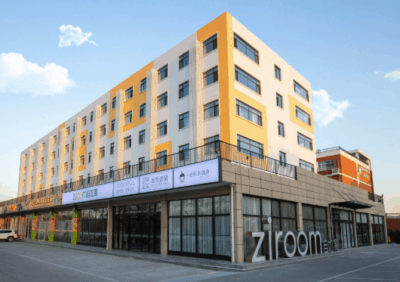
Ziroom founder Xiong Lin
China’s rental housing market continues to attract venture capital investment with one of the industry’s largest players said to have raised $500 million in new financing.
Ziroom, the country’s first rental housing unicorn, is reported to be completing a $500 million series B funding round, led by existing investor New York-based General Atlantic, according to Chinese tech media, 36Kr.
As of the time of publication, Ziroom, a unit of mainland residential brokerage Lianjia, has not released any statement on the reported financing.
The Beijing-based company’s latest round was led by venture firm General Pacific with mainland tech giant Tencent, Sequoia Capital China and Shenzhen-based Tiantu Capital, valued the home rental firm at $4.5 billion.
Ziroom Builds Portfolio of 850,000 Homes
The new funding came nearly one and half years after Ziroom raised RMB 4 billion ($621 million) at a valuation of RMB 20 billion in its series A financing round in January 2018, which was led by US private equity firm Warburg Pincus, together with Sequoia Capital China and Tencent.

Ziroom raised $500m from General Atlantic, Tencent and other backers
Founded in 2011, Beijing-based rental Ziroom currently operates in nine major cities in China, serving 450,000 landlords and three million tenants, according to its website.
The rental housing operator revealed in the first half of 2018 that the total number of units under its management then exceeded 700,000 and set the goal of reaching one million units by the end of the year. That total came after Ziroom’s generated RMB 9 billion worth of rental income from its then 350,000 listings, according to public data. In 2017, the platform’s total listings had grown to 500,000.
However, a recent report in the local media indicated that Ziroom currently has 850,000 rental units under its management, well below the goal of one million it had set to reach by the end of 2018.
Controversies Fail to Stem Funding Tide
Part of the reason for the slowdown at the home leasing operator may have come from a series of controversies involving unhappy customers and substandard homes.
In September last year, the rental housing provider was caught in the center of a formaldehyde-driven media storm, which led Ziroom to pull down 20,000 recent home listings. Ziroom and other multifamily operators were also accused of ramping up rental prices by engaging in a bidding war to lock up supply of available homes in Beijing.
The controversies surrounding the Chinese rental housing sector, however, have not dampened interest from investors.
In March of this year, Ziroom’s competitor Danke Apartment announced that it has closed a $500 million funding round, co-led by existing investor Tiger Global Management and new backer Ant Financial – the e-payment and asset management giant controlled by Alibaba’s Jack Ma.
Also in the same month, Warburg Pincus-backed Mofang Apartments closed on a $150 million funding round, led by Canadian fund manager, Caisse de dépôt et placement du Québec (CDPQ).
RMB 5 Trillion Market Attracts a Crowd
According to a report compiled by China’s largest real estate brokerage, Lianjia, China will eventually have 300 million renters, who will together create a RMB 5 trillion rental housing market. The sector’s prospects come in part from its alignment with one of China’s top policy objectives, as communist party leaders have pushed for establishment of rental housing as an alternative to home ownership in the country’s major urban centres.
The sector’s fast growth has attracted the usual selection of shaky players among some 1,000 dedicated operators competing for a slice of the rental market. Last week, long-term rental housing platform, Guoan Family, was accused of failing to make rental payments to landlords after its parent company, Chinese state-linked conglomerate CITIC Guoan Group, missed a bond payment in late April.
In late October, angry tenants and landlords occupied the Beijing office of Haoyuan Hengye Long Term Rental Apartment to mount their own extra-legal detention of the housing company’s management as the Beijing-based company failed to pay the home-owners, despite collecting rent from the tenants.
The ruckus came less than one month after Yujian Apartment, a rental housing company backed by Xiaomi founder Lei Jun, was warned by a major bank after allegedly failing to meet its financial obligations to tenants and landlords, while a number of other rental housing firms have come under stress or closed down in recent months.
Leave a Reply